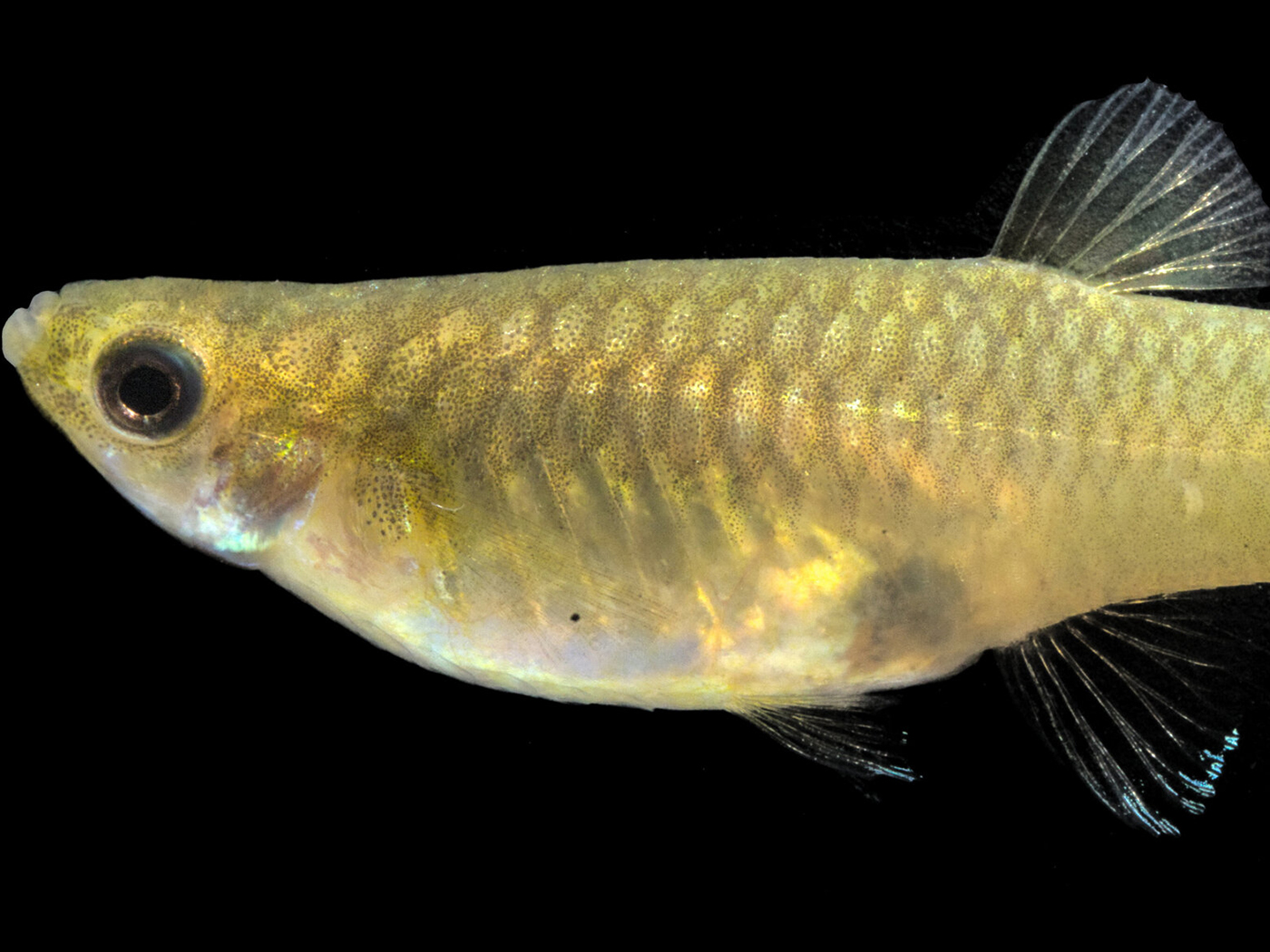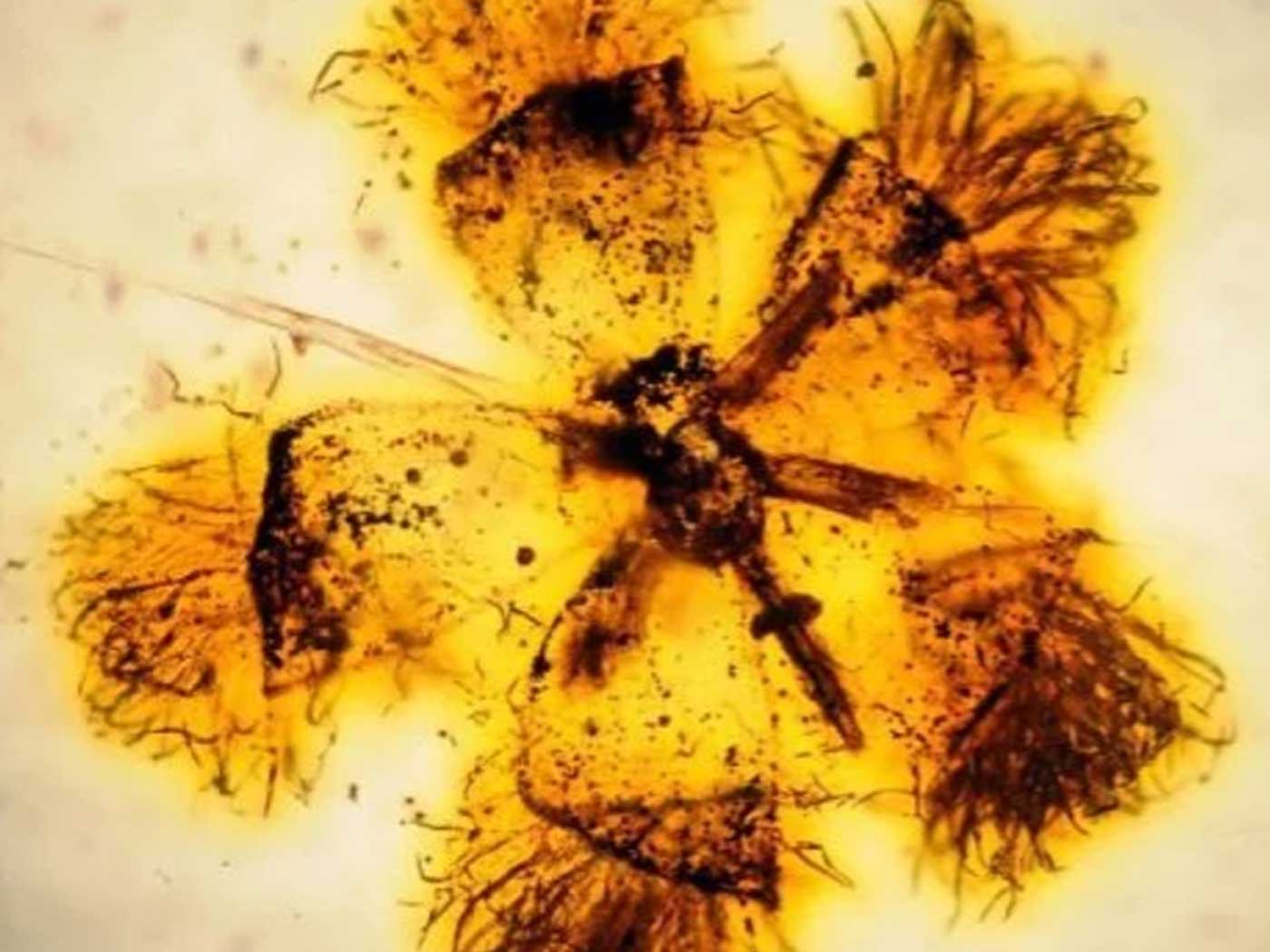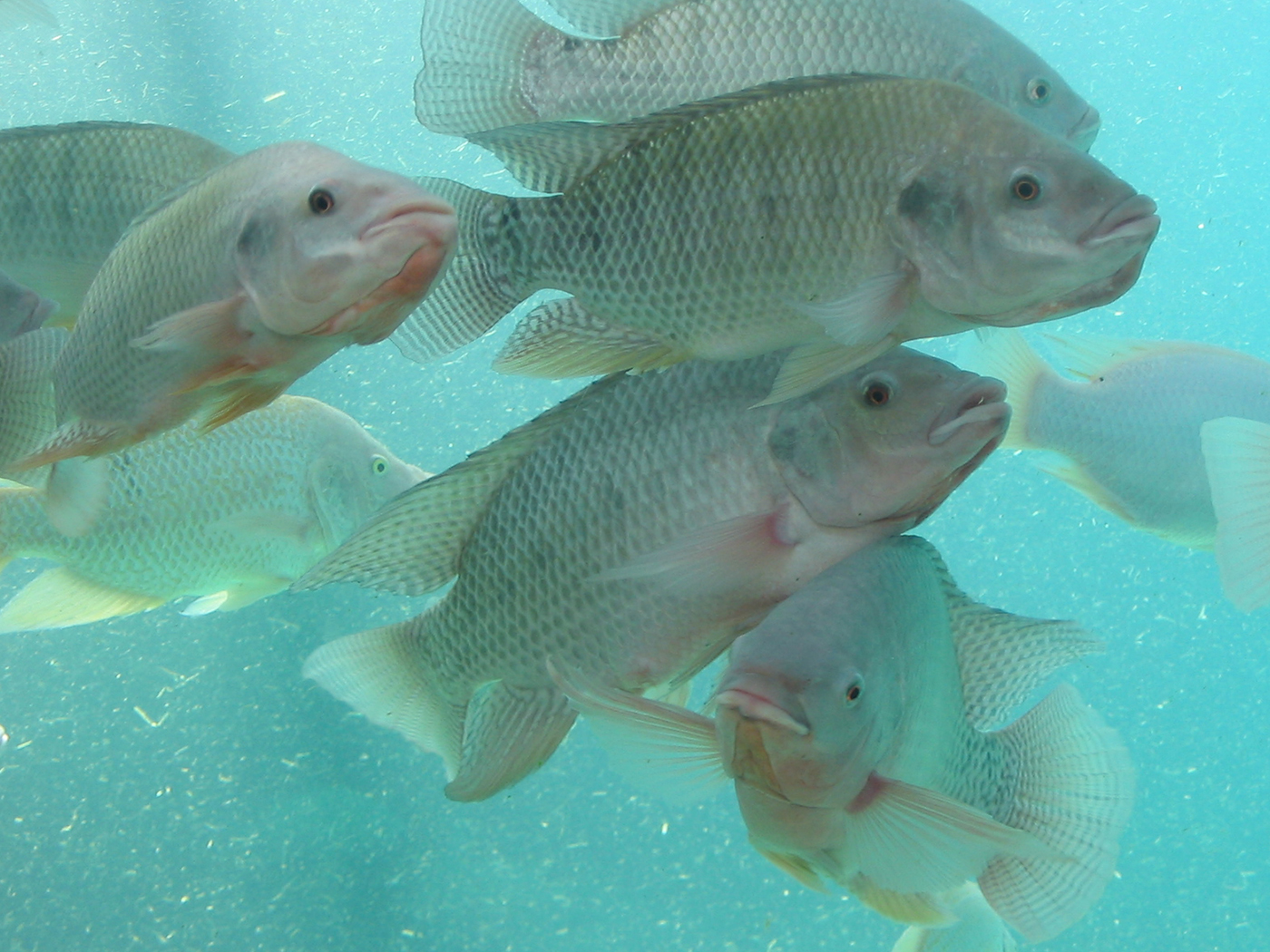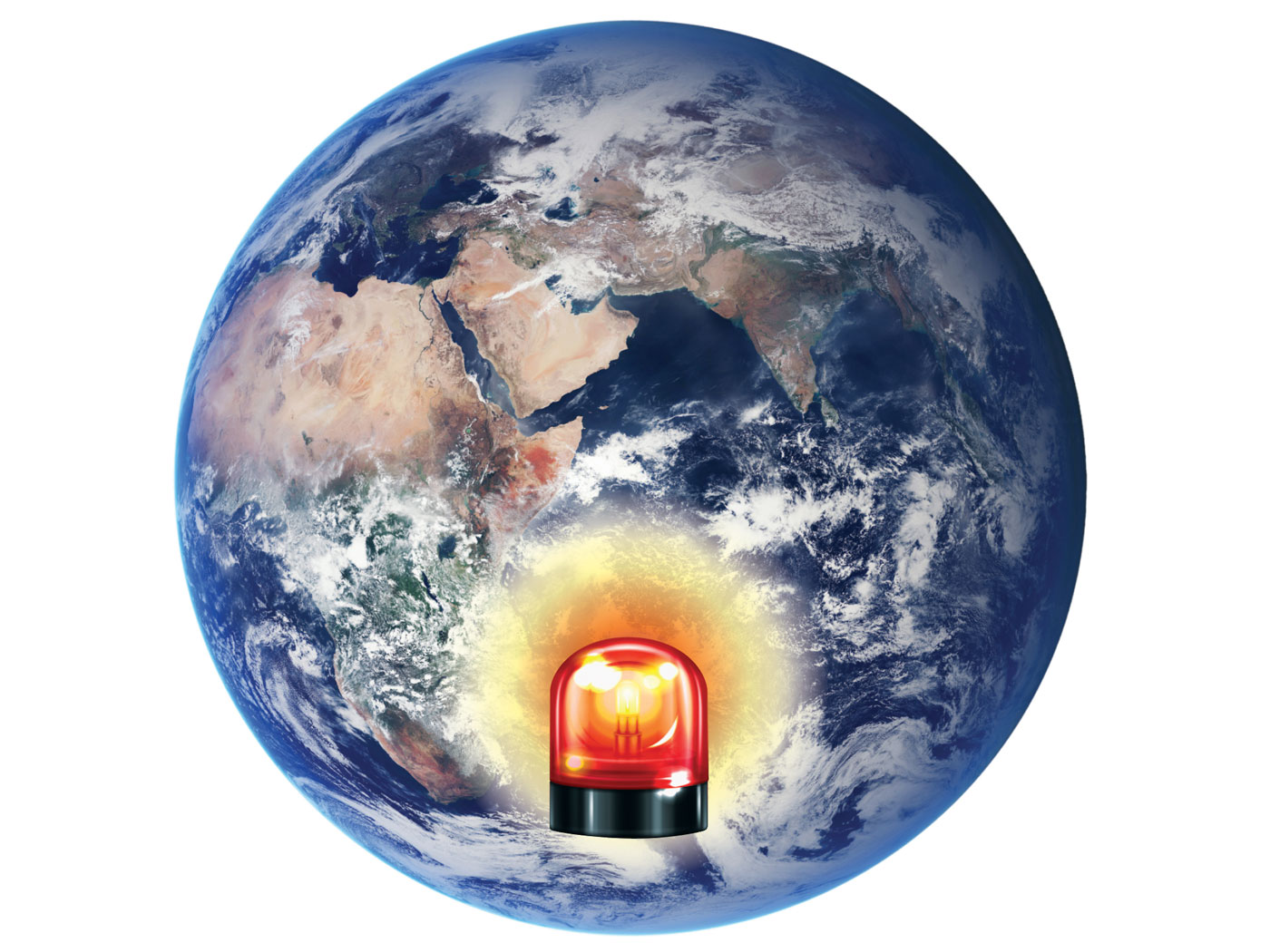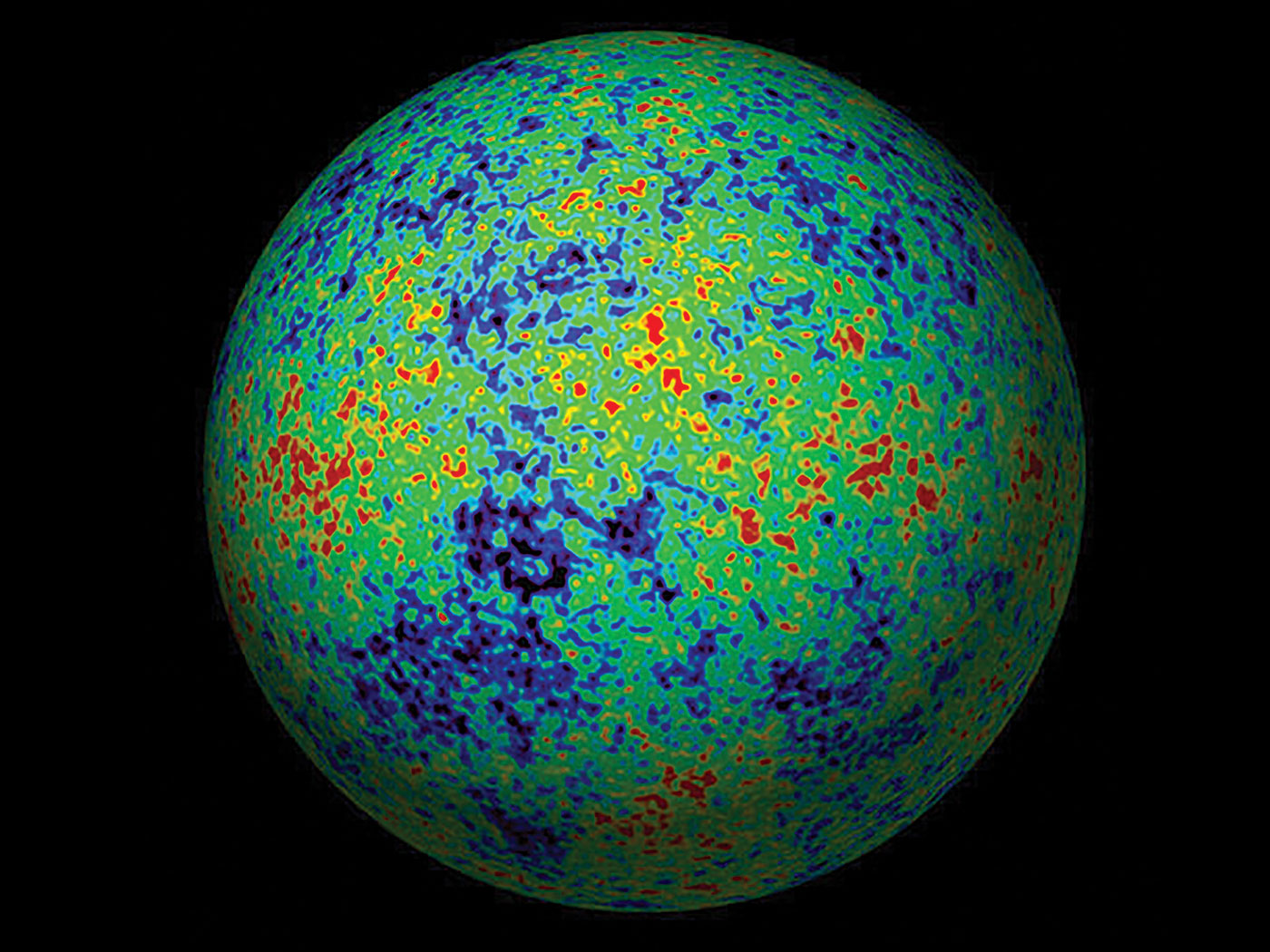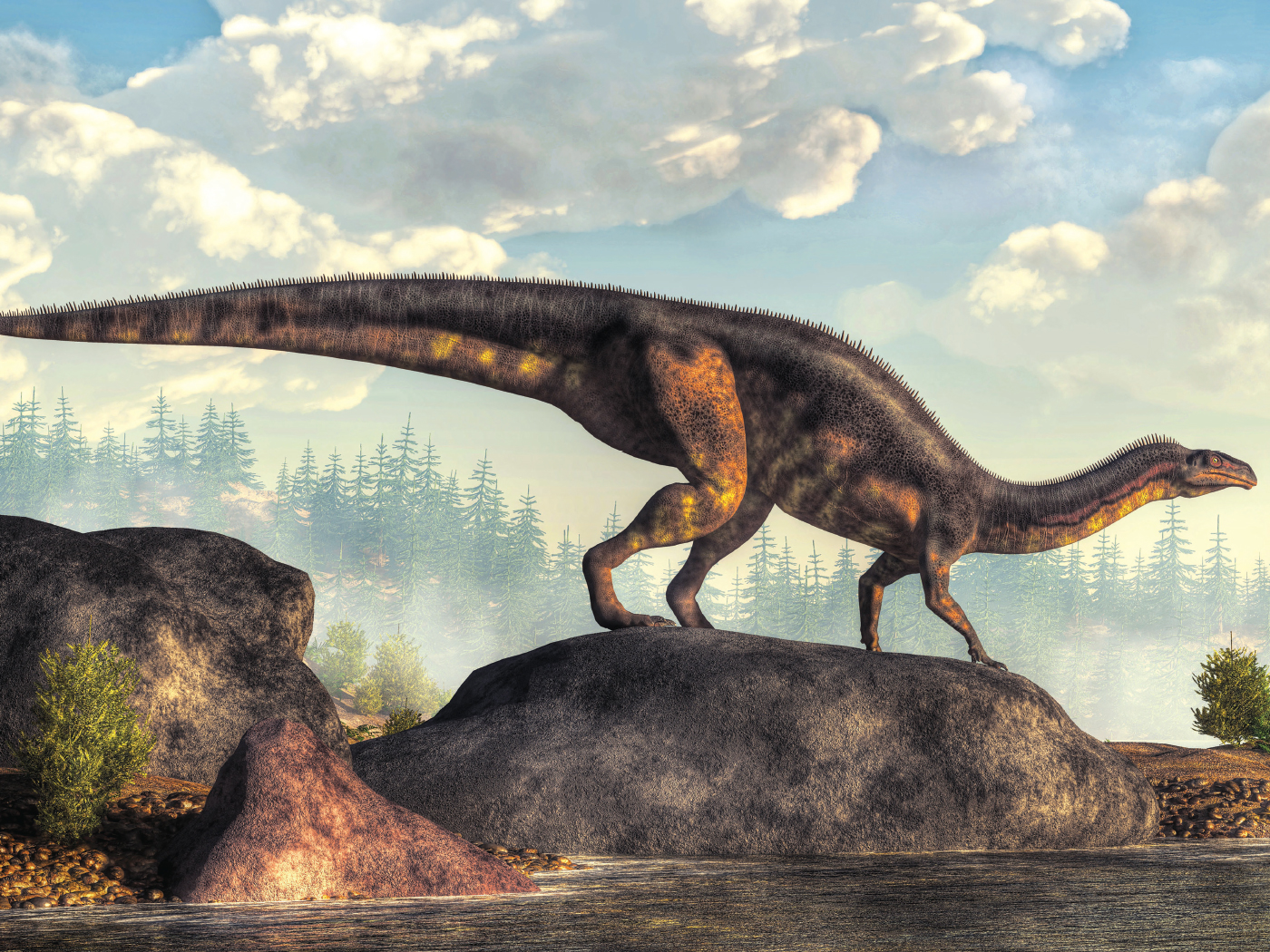The essence of evolutionism was expressed by Charles Darwin in the very last paragraph of his Origin of Species as follows: "Thus, from the war of nature, from famine and death, the most exalted object which we are capable of conceiving, the production of the higher animals, directly follows." The struggle for existence, with elimination of the weak and unfit, leads to survival of the fittest, so this war of nature must eventually lead to higher animals, higher races, and finally to higher civilizations. Or so goes the rationale for Social Darwinism, as exploited especially by Darwin's disciples in the century following the publication of his book.
Among other harmful results of this philosophy has been the thoughtless exploitation of our natural resources during the past century -- mineral, animal, and human resources -- all in the name of socio-economic evolution.
Great mineral and timber resources have been wastefully misused, and many plant and animal species have become extinct, due in many cases to careless human activities. It has been estimated by Myers that at least 1000 species are becoming extinct every year. Then he says:
If current land-use patterns and environment-destruction patterns persist (and many are likely to accelerate), the extinction rate could surely rise by the year 2000 to an average of 100 species per day (Norman Myers, "Extinction Rates Past and Present," Bioscience, Vol. 39, January 1989, p. 39).
Evolutionists, however, have tried to blame this ecological catastrophe on Biblical creationism, even though the real cause was the attitude of Social Darwinism that prevailed during the post-Darwin century. In a widely quoted article, "The Historical Roots of our Ecologic Crisis," historian Lynn White charged, for example, that the Christian concept of a transcendent God had been used to justify this insensitivity to nature. In his last paragraph, White summarized his argument as follows:
Both our present science and our present technology are so tinctured with orthodox Christian arrogance toward nature that no solution for our ecologic crisis can be expected from them alone. Since the roots of our trouble are so largely religious, the remedy must also be essentially religious, whether we call it that or not. We must rethink and refeel our nature and destiny. (Science, March 10, 1967, p. 1207).
The religion which White and most modern environmentalists advocate is some form of pantheism. Pantheism is also based on evolution, of course, but it is a different kind of evolution than Darwinism. Most "New-Agers" are opposed to Darwinism, because they recognize the folly of its pseudo-science and the cruelty of its motivations. But they are evolutionists nonetheless, bitterly opposed to the Creator God of the Bible. Instead, they "worship and serve the creation more than the Creator" (Romans 1:25).
They are wrong, however, in attributing our "ecologic crisis" to the Creator and His "dominion mandate," even though there are, no doubt, some Christians who have indeed been insensitive to nature. In fact, many of the "social Darwinists" of the 19th and 20th centuries were "theistic" evolutionists, and were so enamored of the idea of "evolutionary progress," that they labored diligently to harmonize the Bible with this system.
This was impossible, of course, for the Bible is squarely opposed to any form of evolutionism -- atheistic, theistic, or pantheistic. The Bible certainly does not condone human cruelty to animals or even to plant life, but it also condemns all forms of nature worship.
Christians today are under many pressures to compromise, either with Darwinian evolutionism on the one hand, or pantheistic (New-Age) evolutionism on the other. It is more important than ever, therefore, for us to try to understand the full implications of our relation to God's creation, as well as our personal relation to Him as our Creator and Redeemer.
After God had finished creating all other things, He created man and woman and gave them "dominion over the fish of the sea, and over the fowl of the air, and over the cattle, and over all the earth, and over every creeping thing that creepeth upon the earth" (Genesis 1:26). This "dominion mandate" thus makes a clear distinction between mankind and all the rest of creation, for only men and women were created "in the image of God" (Genesis 1:27), and were given control "over all the earth." This dominion, however, was not to be a totalitarian despotism, but a stewardship under God, responsible to God for its care, "for the earth is the LORD's, and the fullness thereof" (Psalm 24:1).
And God does care for His creation; He is not capricious. He is omniscient and omnipotent and has a divine purpose in every thing He created. Before sin and death came into the world, God placed Adam in the garden of Eden and told him "to dress it and to keep it" (Genesis 2:15). Then, he and Eve were told later that they were to "be fruitful, and multiply, and replenish (i.e., fill) the earth, and subdue it" (Genesis 1:28). The clear implication was that, as the population expanded to fill the earth, his descendants were to "dress and keep" their own respective parts of the earth, just as Adam was to care for his. The work of subduing the earth would involve learning to understand all its processes and all its creatures, for the benefit of mankind and the glory of God.
This mandate is still in effect today. It apples to all descendants of Adam and Eve, but is even more important for Christians, because we who have been saved have come to know the Lord not only in His work as the world's Creator, but also as the world's Redeemer.
In exercising his dominion over the earth, man has the right to eat of its fruits and herbs (Genesis 1:29) and also the flesh of animals. "For every creature of God is good, and nothing to be refused, if it be received with thanksgiving" (I Timothy 4:4). Even God, appearing to Abraham in human form, ate of "a calf, tender and good," along with "butter and milk" (Genesis 18:1,7,8), and Jesus ate of the Passover lamb with His disciples (Luke 22:7,8).
The skins of animals may also be used to make human clothing. John the Baptist, the greatest man ever born of woman, according to Christ, filled with the Holy Spirit from his mother's womb (Matthew 11:11; Luke 1:15), "was clothed with camel's hair, and with a girdle of a skin about his loins" (Mark 1:6). God Himself set the pattern after Adam and Eve had sinned, for unto them "did the LORD God make coats of skins, and clothed them" (Genesis 3:21). Animals were also used, with God's approval, for transportation (Jesus rode into Jerusalem on an ass's colt, for example), to serve as beasts of burden, and as sacrifices for sin. Trees were felled for construction and for firewood, and designated areas (e.g., the valley of Hinnom) were used for refuse disposal. All such uses of the earth and its creatures are evidently recognized by God as necessary and proper in connection with His purposes for man in this present world.
At the same time, we must never forget that we are stewards of God's created world and that He cares deeply for it. "(He) hath measured the waters in the hollow of His hand, and meted out heaven with the span, and comprehended the dust of the earth in a measure, and weighed the mountains in scales, and the hills in a balance" (Isaiah 40:12).
Although His greatest provisions are for men and women, He also provides for animals, and even for the land itself, "to cause it to rain on the earth, where no man is; on the wilderness, wherein there is no man; to satisfy the desolate and waste ground; and to cause the bud of the tender herb to spring forth" (Job 38:26,27). "He sendeth the springs into the valleys, which run among the hills. They give drink to every beast of the field: . . . By them shall the fowls of the heaven have their habitation, which sing among the branches . . . . He causeth the grass to grow for the cattle, . . . So is this great and wide sea, wherein are things creeping innumerable, . . . These wait all upon Thee, that Thou mayest give them their meat in due season . . . . They are filled with good" (Psalm 104:10,11,12,14,25,27,28). If God is so careful to provide for His creatures, we as His stewards thereof should also care for them.
The creation also provides wonderful instruction for us. The waters speak of life, the fires of judgment, the trees of strength, the vineyards of spiritual fruit. The ants teach industry and the eagles of mounting up toward God. "But ask now the beasts, and they shall teach thee; and the fowls of the air, and they shall tell thee; Or speak to the earth, and it shall teach thee; and the fishes of the sea shall declare unto thee. Who knoweth not in all these that the hand of the LORD hath wrought this?" (Job 12:7-10).
Furthermore, God does not take death lightly, either human death or animal death. Jesus said: "Are not two sparrows sold for a farthing? and one of them shall not fall on the ground without your Father" (Matthew 10:29). Nor does God condone mistreatment of animals. "For the Scripture saith, Thou shalt not muzzle the ox that treadeth out the corn" (I Timothy 5:18). God on one occasion even miraculously allowed an animal to protest verbally to its master about its beatings (Numbers 22:28). God did not allow His people to "seethe a kid in his mother's milk" (Exodus 23:19), even though the meat of the animal could be eaten by them. He ordained a weekly rest for animals as well as for people. "The seventh day is the sabbath (i.e., rest) of the LORD thy God: in it thou shalt not do any work, . . . nor thy cattle" (Exodus 20:10). He likewise commanded even a sabbatical year of rest for agricultural lands (Leviticus 25:3,4).
God lovingly takes care of His creation, and so should we, as His stewards. But we must not worship it, nor consider "nature" as our "Mother Nature." We have not come by evolutionary descent from the animals (or from hydrogen gas!) as the naturalists believe, nor do we have any evolutionary kinship with the animals, as the pantheists believe.
Therefore, every problem of an ecological and environmental nature must be carefully considered in light of all these truths. There are many such problems -- air pollution, water pollution, deforestation, suburban development, agricultural pesticides, toxic wastes, coal mining, animal experimentation, and on and on. The laissez-faire evolutionist may want freedom to spoil the environment unhindered, and the "green movement" pantheistic evolutionist may want them halted altogether, but the will of God should always be the deciding factor.
This ideally should involve an optimum balance between human needs on the one hand, and maintenance of the pristine ecology on the other. Such an optimum balance can rarely be achieved, but this should be the goal.
Both those who "destroy the earth" (Revelation 11:18), on the one hand, and also those who "worship and serve the creation" (Romans 1:25), on the other, are under the condemnation of God. Nature is not our "Mother" and Time is not our "Father." All men are the offspring of God by creation (Acts 17:28,29), and redeemed men are the children of God by regeneration through faith in Christ (Galatians 3:26). May God help all of us who know Christ as Creator and Savior to honor His creation as well.
* Dr. Henry M. Morris is Founder and President Emeritus of the Institute for Creation Research.




